TCM Menopause Pattern Assessment Tool
Identify Your Menopause Pattern
This assessment helps identify which Traditional Chinese Medicine pattern may be contributing to your symptoms. Remember, this is a preliminary tool and should not replace professional diagnosis.
Your Assessment
Yin Deficiency
Qi Stagnation
Important: This tool provides a basic assessment only. TCM patterns require a thorough diagnosis from a licensed practitioner, including pulse and tongue examination. Always consult with a qualified TCM practitioner before starting any treatment.
Feeling like your body’s on a roller‑coaster during menopause? Hot flashes, night sweats, mood swings, and sleep disturbances can make everyday life feel like a chore. While hormone therapy dominates headlines, many women are turning to Traditional Chinese Medicine menopause solutions for a gentler, holistic path. Below we break down what TCM offers, how it works with the body’s own energy, and practical steps to try it safely.
Key Takeaways
- TCM views menopause as an imbalance of Yin, Yang, and Qi, often linked to Yin deficiency and Qi stagnation.
- Acupuncture, specific herbal formulas (e.g., ZhiBaiDiHuangWan), and dietary adjustments can ease hot flashes, improve sleep, and calm mood swings.
- Clinical trials from China and Taiwan show statistically significant reductions in hot flash frequency when TCM is combined with lifestyle changes.
- Compared with conventional hormone therapy, TCM tends to have fewer side‑effects, but it requires personalized diagnosis from a qualified practitioner.
- Start with a certified TCM practitioner, discuss any current medications, and monitor symptoms using a simple symptom diary.
Understanding Menopause
Menopause is the natural cessation of ovarian hormone production, typically occurring between ages 45 and 55. The drop in estrogen and progesterone triggers classic symptoms: hot flashes, night sweats, vaginal dryness, and mood changes. While it’s a normal life stage, the abrupt hormonal shift can feel unsettling, especially for women who have been on hormonal birth control or hormone replacement therapy (HRT) for years.
Basics of Traditional Chinese Medicine
Traditional Chinese Medicine (TCM) is a millennia‑old medical system that balances the body’s vital energy, called Qi. It classifies health issues through patterns such as Yin deficiency, Yang excess, or Qi stagnation, then applies acupuncture, herbs, and dietary therapy to restore harmony.
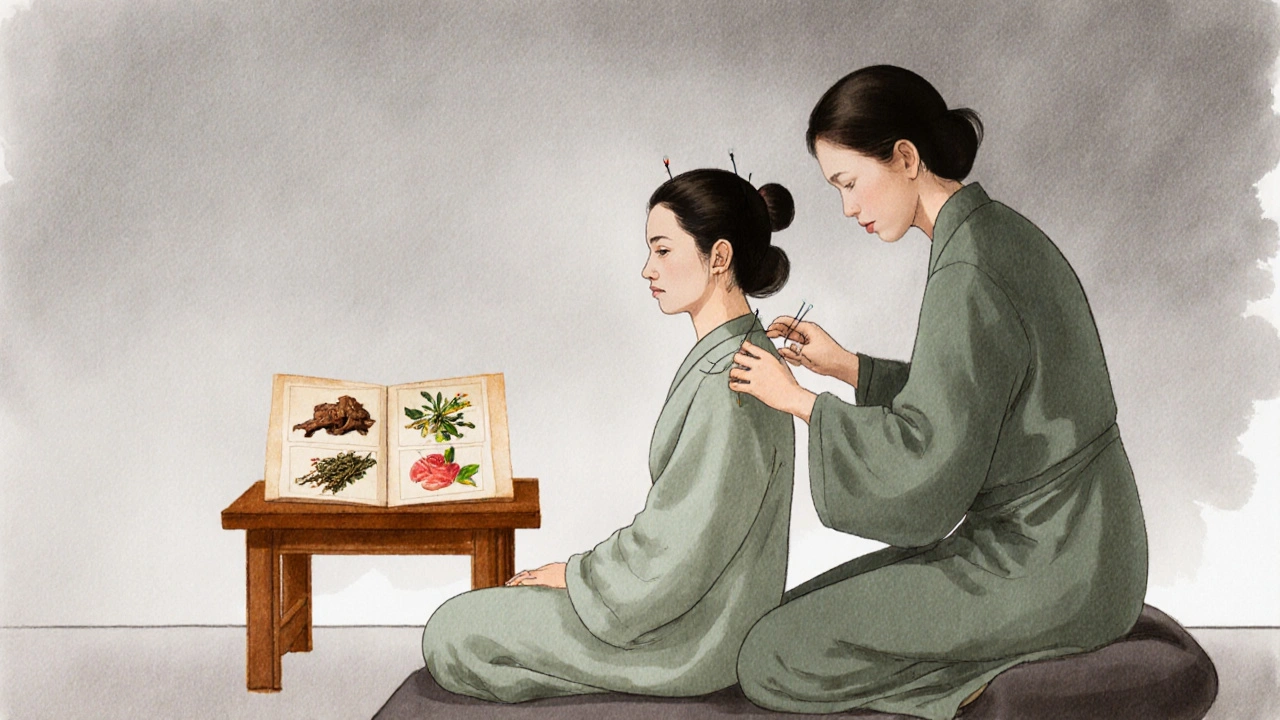
How TCM Views Menopause
From a TCM perspective, menopause is a natural transition marked by a gradual decline of Kidney Yin and a rise in internal heat. Two pattern diagnoses dominate:
- Yin deficiency - manifests as night sweats, dry throat, low back pain, and a feeling of emptiness.
- Qi stagnation - often linked with irritability, breast fullness, and irregular cycles before the final amenorrhea.
Addressing these patterns, rather than merely adding estrogen, is what sets TCM apart. By nourishing Yin and moving stagnant Qi, the body can regulate temperature, calm the nervous system, and improve sleep quality.
Core TCM Modalities for Menopause
Three pillars dominate TCM treatment plans for menopausal women.
- Acupuncture - thin needles are placed at specific points (e.g., SP6, KI3, LI4) to modulate hormone‑related pathways and release endorphins, which can reduce hot flash frequency by up to 45% in clinical trials.
- Chinese herbal formulas - personalized blends, often based on classic prescriptions such as ZhiBaiDiHuangWan, SuanZaoRenTang, or GuLianWan, supply phyto‑estrogenic compounds and support Kidney Yin.
- Dietary therapy - foods that nurture Yin (black sesame, soy, tofu, duck) and avoid excess yang (spicy, fried, alcohol) help keep internal heat in check.
Sample Herbal Formula: ZhiBaiDiHuangWan
This classic formula combines four herbs: Rehmannia glutinosa (Shu Di Huang), Anemarrhena asphodeloides (Zhi Mu), Gardenia jasminoides (Zhi Zi), and Rhubarb (Da Huang). In TCM it “clears heat while nourishing Yin.” Modern analyses show it contains flavonoids with mild estrogenic activity, making it a go‑to for night sweats and hot flashes.
Typical dosage: 6g of granulated powder dissolved in warm water twice daily, taken after meals. Always have a licensed practitioner adjust the formula based on your pulse, tongue, and symptom pattern.

Evidence and Research
Several peer‑reviewed studies support TCM’s role in menopause management:
- A 2023 randomized controlled trial in Shanghai (n=120) found that a 12‑week acupuncture protocol reduced average hot flash episodes from 6.8 to 2.1 per day, with effects lasting 3 months post‑treatment.
- A meta‑analysis of 14 Chinese trials (total n≈1,500) reported a 38% improvement in sleep quality when patients used combined acupuncture and herbal therapy versus placebo.
- Laboratory work from National Taiwan University identified phyto‑estrogenic compounds in ZhiBaiDiHuangWan that bind to estrogen receptors α and β at 20% of estradiol’s affinity, offering a mild, natural estrogen boost.
While many studies are small‑scale, the consistent trend is clear: TCM can safely alleviate key menopausal symptoms, especially when tailored to individual pattern diagnoses.
TCM vs. Conventional Hormone Therapy
| Aspect | TCM Approach | Conventional Hormone Therapy |
|---|---|---|
| Mechanism | Balances Yin, Yang, and Qi; supplies phyto‑estrogens via herbs. | Direct supplementation of synthetic estrogen ± progesterone. |
| Typical Benefits | Reduces hot flashes, improves sleep, calms mood, supports overall vitality. | Rapid relief of vasomotor symptoms; protects bone density. |
| Common Side‑effects | Minor digestive upset; rare allergic reactions to herbs. | Increased risk of blood clots, breast cancer, gallbladder disease. |
| Duration of Treatment | Usually 3-6 months of individualized therapy; can continue as maintenance. | Often prescribed for 5-10 years, depending on risk profile. |
| Evidence Base | Growing body of RCTs and meta‑analyses; still emerging. | Extensive large‑scale trials; established guidelines. |
| Cost (US$) | £80-£150 per month for acupuncture + herbs (varies by practitioner). | £30-£70 per month for standard HRT patches/pills. |
Both paths have pros and cons. If you’re wary of synthetic hormones, TCM offers a gentler, personalized alternative. If rapid symptom control is your priority and you have no contraindications, HRT remains a viable first‑line option. Discussing both with your healthcare team ensures an informed decision.
Practical Tips for Integrating TCM
- Find a certified TCM practitioner with a background in women’s health. Verify credentials through a local acupuncture board or Chinese Medicine Association.
- Schedule an initial consultation. The practitioner will assess your pulse, tongue, and symptom pattern to decide whether Yin deficiency, Qi stagnation, or a mixed pattern is dominant.
- Start with a gentle acupuncture schedule: 1‑2 sessions per week for the first 4 weeks, then taper based on response.
- Take any prescribed herbal formula exactly as instructed-usually after meals to aid absorption.
- Incorporate dietary recommendations: add a tablespoon of black sesame seeds to smoothies, sip warm soy milk in the morning, and avoid late‑night spicy meals.
- Keep a simple symptom diary (date, hot flash count, sleep quality, mood rating). Review the diary with your practitioner every 2-3 weeks to adjust treatment.
- If you’re already on HRT or other meds, inform both your Western doctor and TCM practitioner. Some herbs can interact with blood thinners or antidepressants.
Patience is key-TCM typically shows noticeable improvement after 4-6 weeks, but long‑term benefits emerge with continued practice.
Frequently Asked Questions
Can TCM replace hormone therapy entirely?
TCM can significantly reduce many menopausal symptoms, but it may not address bone‑density loss as robustly as estrogen. Women at high risk for osteoporosis might still benefit from a low‑dose HRT combined with TCM. Always discuss with a healthcare professional.
Is acupuncture safe for women with a uterus?
Yes. Acupuncture is minimally invasive and does not affect uterine tissue. Practitioners avoid points that could stimulate menstruation during early menopause, focusing instead on points that calm heat and regulate Qi.
How long does a typical herbal formula regimen last?
Most practitioners start with a 3‑month course, reassessing the pattern every 4 weeks. If symptoms improve, the formula may be tapered or switched to a milder maintenance blend.
Are there any side‑effects I should watch for?
Mild digestive upset or a temporary increase in menstrual‑like spotting can occur as the body rebalances. Severe allergic reactions are rare but should prompt immediate medical attention.
Do I need insurance to cover TCM treatments?
Coverage varies by country and provider. In New Zealand, some private health funds reimburse acupuncture and herbal consultations if a referral is provided. Check your policy details before starting.
Menopause doesn’t have to be endured in silence. By tapping into the ancient wisdom of Traditional Chinese Medicine-through acupuncture, herbal formulas, and mindful eating-you can reclaim comfort and vitality without the heavy side‑effects of synthetic hormones. Start with a qualified practitioner, track your progress, and adjust as needed. Your body’s transition can become a time of balanced energy, not just a series of inconvenient symptoms.

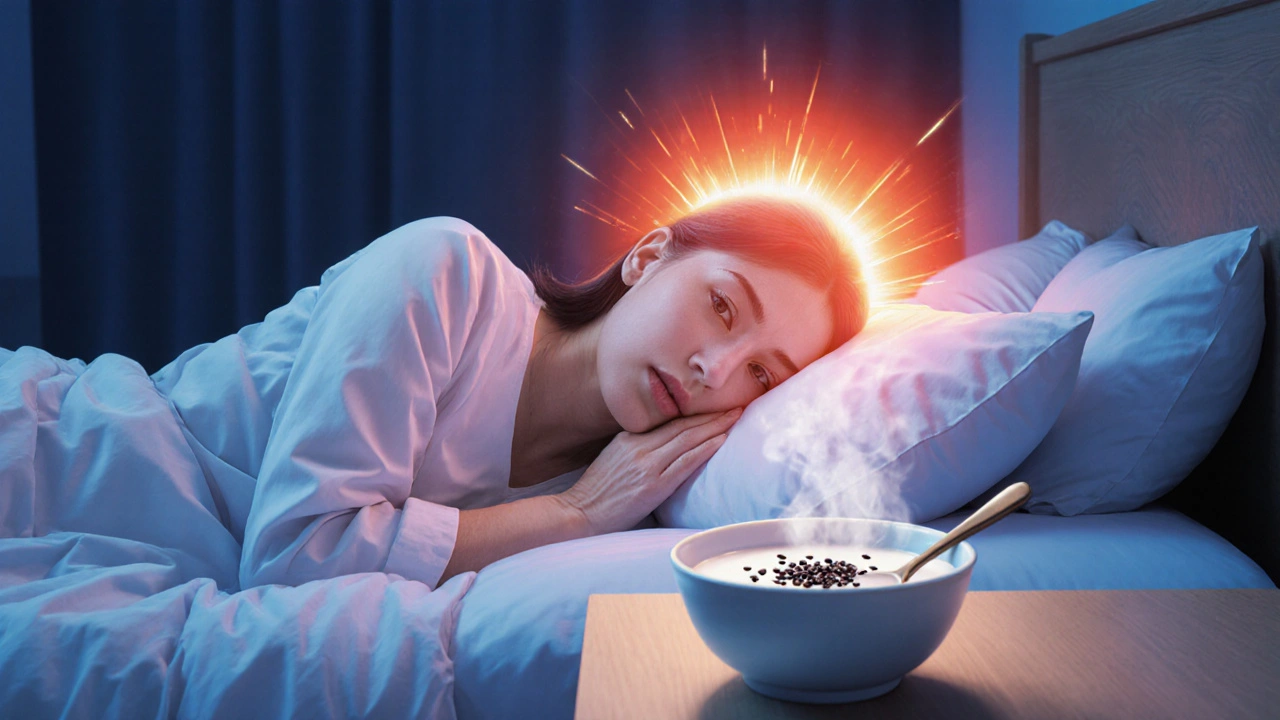

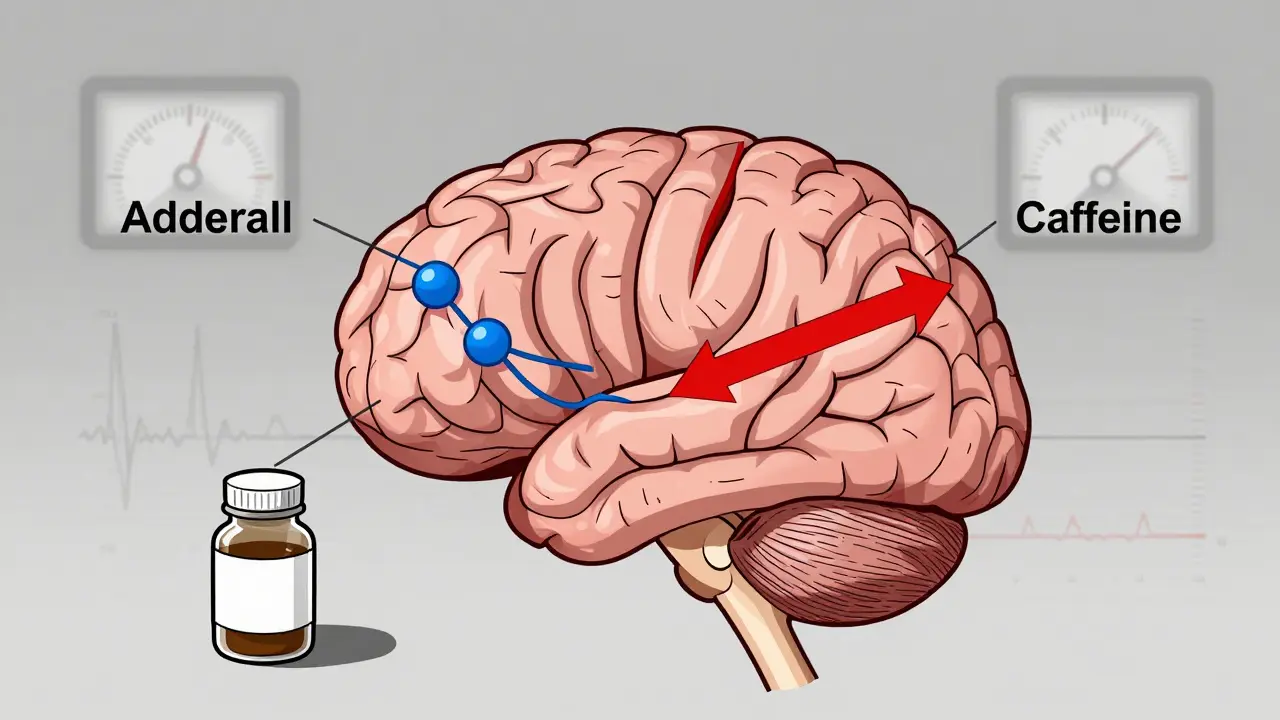

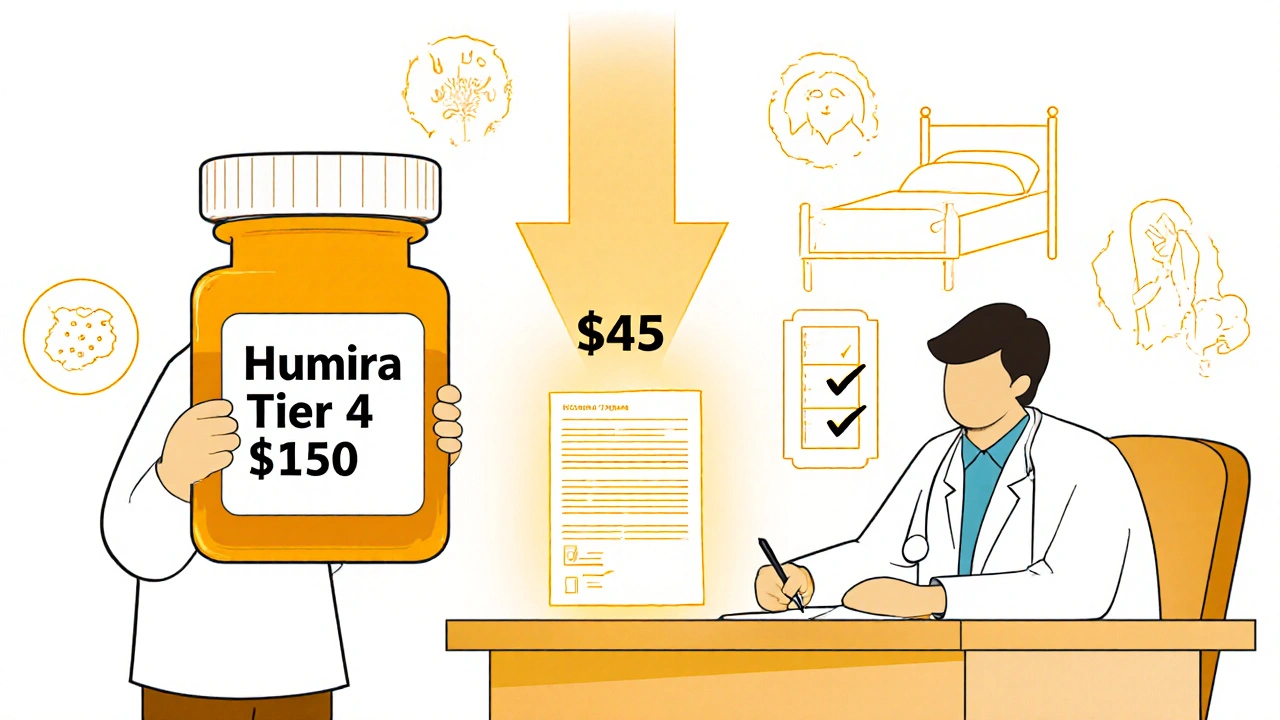
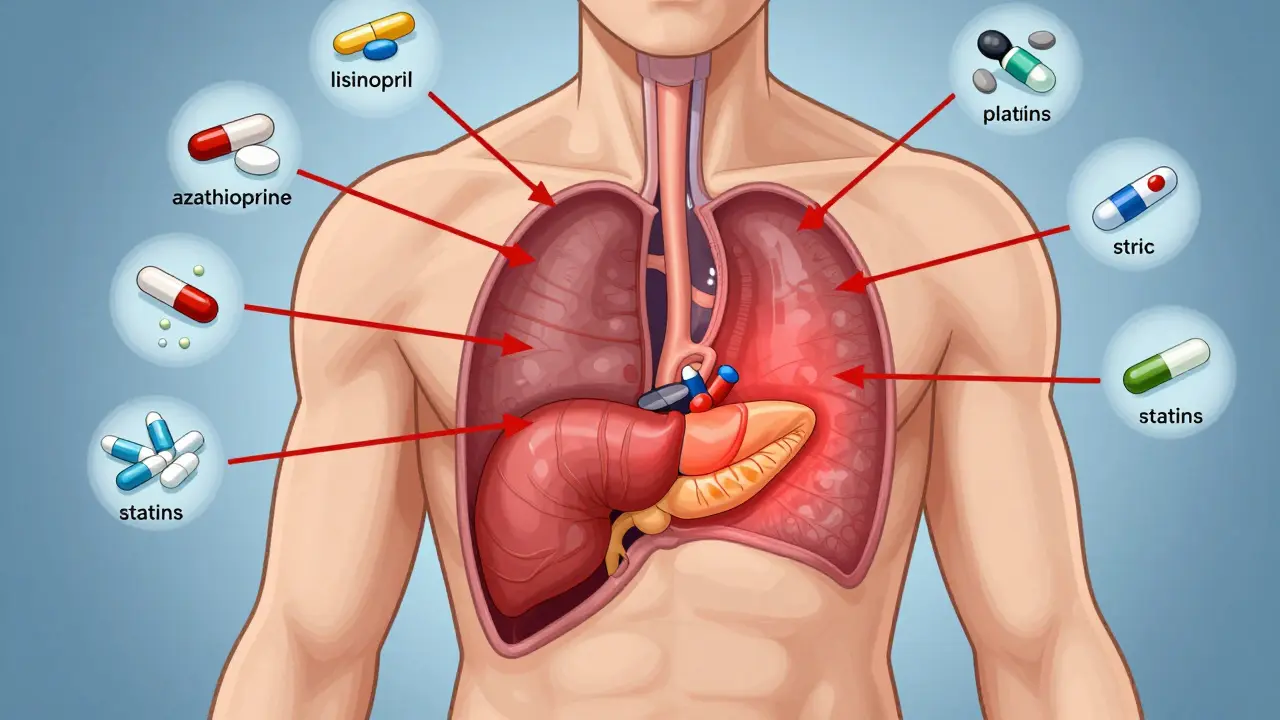

15 Comments